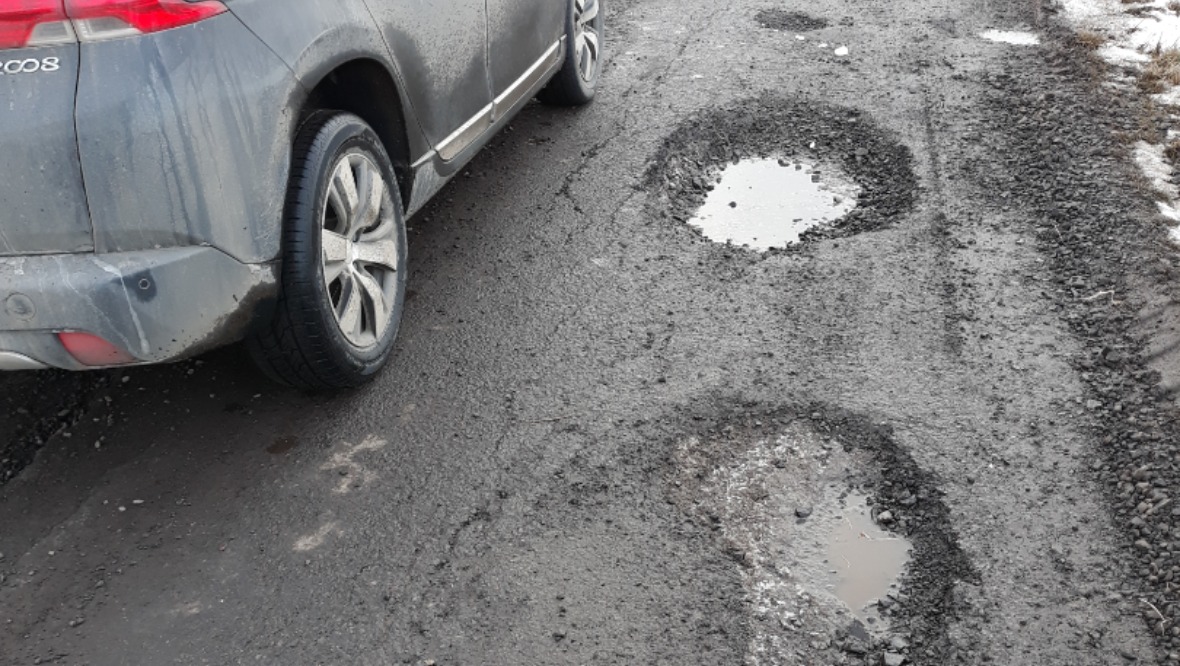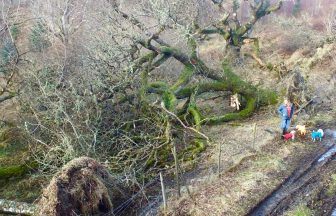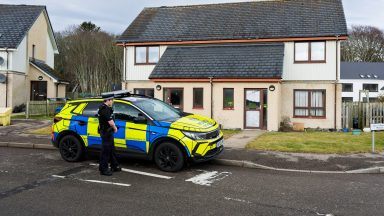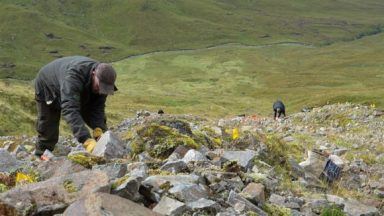Roads campaigners in Caithness are urging the Scottish Government to provide a multi-million pound package of emergency funding for repairs
Hundreds of people have backed the call from a new action group ‘Caithness Roads Recovery’, signing up to an online community plea for help.
One of the founders, retired area police commander Iain Gregory, said he had been inundated with messages of support amid “huge public anger” about the deteriorating state of some routes.
Mr Gregory and fellow resident Helen Campbell have honed in on long stretches of mainly non-trunk roads in Caithness that bear vast potholes and crumbling surfaces.
The campaign group, which has registered the same issues in parts of neighbouring north-west Sutherland, has warned of “catastrophic accidents waiting to happen”.
It states on its new campaign page: “Our roads are a vital lifeline for us all and their ever-deteriorating state is seriously impacting that lifeline.
“The practice used over the past two decades of quick, short-term repairs is no longer acceptable. Our community cannot continue to function properly and thrive on such poor roads.”
There needs to be a long-term, robust plan that will provide the region with a permanent solution.”
Attributing a huge increase in the volume of traffic in recent years to extra tourism and windfarm construction, Mr Gregory – who served with the police for more than 30 years – said action was needed “at a senior level” to push for emergency funding.
Highland councillor Matthew Reiss, another former area police chief in the county, echoed the concerns.
He said: “The problem has built up over many years and the recent spell of severe weather, whilst not unexpected in a Highland winter, has been the final straw for a lot of the local roads.
“It is clear that the sum required to repair the roads is millions of pounds, which is way beyond the ability of the local authority.
“The Highlands needs an emergency package of funding from the Scottish Government.”
He highlighted priorities routes linking Halkirk and Calder, and Halkirk and Glengolly.
Mr Reiss added: “I’ve a particular concern for emergency service drivers who might be responding to a really serious incident.”
Caithness Roads Recovery is collating data aimed at demonstrating the impact of deteriorating roads on people’s daily life, safety and finances.
Liability for vehicle damage due to poorly maintained non-trunk roads often falls on Highland Council.
A Highland Council spokeswoman said: “We have a process in place regarding potholes and defects on council maintained roads and all incidents that are reported are followed up.
“Our roads service has continued to deliver frontline services throughout the Covid-19 restrictions. Our focus has been urgent road defects and winter maintenance – and remains so.
“Where resources and restrictions have permitted, we have undertaken routine maintenance works. In the meantime, we refer people to our factsheet on potholes on our website.
“We encourage anyone to report any defects using the online reporting form or they can phone 01349 886601.”
A Transport Scotland spokesman said: “The A9 is a vital lifeline route for the far north of Scotland which supports commerce, industry, education, health, tourism and the social wellbeing of all the communities it serves.
“We recognise this importance and through our Trunk Road management and maintenance contract invest significantly the operation and maintenance of the A9. Since 2007 to November 2020, the Scottish Government has invested almost £254m in the maintenance of the A9 and £7.4m on the A99.
“Our Operating Company BEAR Scotland continues with their weekly safety inspections of trunk roads, prioritising repairs as required.
“In addition, the delivery of the £9.6m A9 Berriedale Braes Improvement Project is delivering safety benefits for road users by removing an existing hairpin bend and improving the road alignment.”
Follow STV News on WhatsApp
Scan the QR code on your mobile device for all the latest news from around the country


 STV News
STV News
























